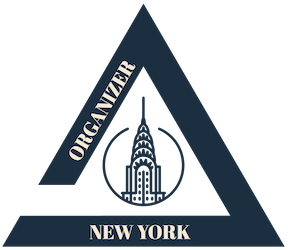
The Federal Trade Commission today sued to block Tapestry, Inc.’s $8.5 billion acquisition of Capri Holdings Limited, a deal that seeks to combine three close competitors – Tapestry’s Coach and Kate Spade brands and Capri’s Michael Kors brand. If allowed, the deal would eliminate direct head-to-head competition between Tapestry’s and Capri’s brands. It would also give Tapestry a dominant share of the “accessible luxury” handbag market, a term coined by Tapestry to describe quality leather and craftsmanship handbags at an affordable price.
The Commission issued an administrative complaint and authorized a lawsuit in federal court to block the proposed acquisition, alleging that Tapestry’s acquisition of Capri will eliminate fierce competition between the two companies.
The proposed merger threatens to deprive millions of American consumers of the benefits of Tapestry and Capri’s head-to-head competition, which includes competition on price, discounts and promotions, innovation, design, marketing, and advertising. The deal also threatens to eliminate the incentive for the two companies to compete for employees and could negatively affect employees’ wages and workplace benefits. Post acquisition, the combined Tapestry and Capri would employ roughly 33,000 employees worldwide.
“With the goal to become a serial acquirer, Tapestry seeks to acquire Capri to further entrench its stronghold in the fashion industry,” said Henry Liu, Director of the FTC’s Bureau of Competition. “This deal threatens to deprive consumers of the competition for affordable handbags, while hourly workers stand to lose the benefits of higher wages and more favorable workplace conditions.”
Tapestry and Capri currently compete on everything from clothing to eyewear to shoes. Where Tapestry and Capri most vigorously compete against one another – mainly between Tapestry’s Coach and Kate Spade brands against Capri’s Michael Kors brand – is in the “accessible luxury” handbag market. Today, Coach, Kate Spade and Michael Kors continuously monitor each other’s handbag brands to determine pricing and performance, and they each use that information to make strategic decisions, including whether to raise or lower handbag prices.
The deal would eliminate fierce head-to-head competition on many important attributes including on price, discounting, and design. Tens of millions of Americans that purchase Coach, Kade Spade, and Michael Kors products could face higher prices, the FTC’s complaint alleges. If Tapestry acquires Capri, Tapestry would gain a dominant market share in the “accessible luxury” handbag market, dwarfing every other competitor, the FTC alleges.
Tapestry has engaged in a decade-long M&A strategy through serial acquisitions to achieve its dream of becoming a major American fashion conglomerate. It has continuously sought to acquire a variety of fashion brands, successfully pursuing many of its target acquisitions.
Given Tapestry’s pattern of serial acquisitions, the acquisition of Capri will further entrench Tapestry’s stronghold, making it harder for new brands to both enter the market and have a meaningful presence, the FTC alleges. This deal isn’t likely to be Tapestry’s last, as the acquisition of Capri will give Tapestry additional leverage to make even more acquisitions in the future, according to the complaint. As the FTC’s complaint states, documents produced by Tapestry indicate that it has no plans to stop acquisitions even after this proposed merger.
The Commission vote to issue the administrative complaint and authorize staff to seek a temporary restraining order and a preliminary injunction was 5-0. Commissioner Melissa Holyoak voted yes because she has reason to believe that the merger will eliminate substantial head-to-head competition between the parties.
A public version of the complaint will be available and linked to this news release as soon as possible.
NOTE: The Commission issues an administrative complaint when it has “reason to believe” that the law has been or is being violated, and it appears to the Commission that a proceeding is in the public interest. The issuance of the administrative complaint marks the beginning of a proceeding in which the allegations will be tried in a formal hearing before an administrative law judge.
Official news published at https://www.ftc.gov/news-events/news/press-releases/2024/04/ftc-moves-block-tapestrys-acquisition-capri
Images courtesy of PixaBay

